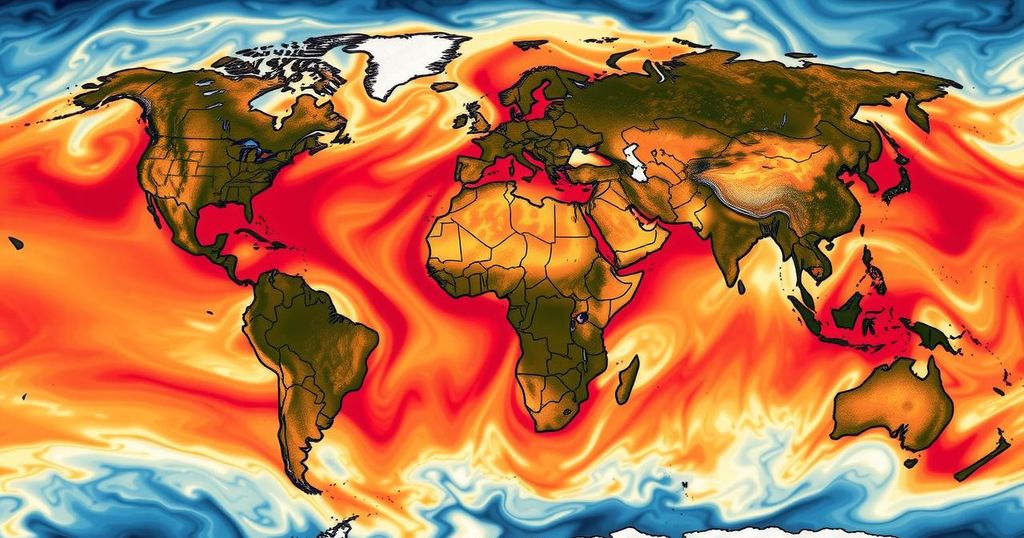Global Temperature Expected to Exceed 1.5C, Marking Historic Milestone

The average global temperature for 2023 is set to exceed 1.5 degrees Celsius for the first time, marking it as the warmest year on record. Urgent action to reduce carbon emissions is crucial, as current global commitments fall short of targets established in the Paris Agreement. The persistent trend of temperatures above this critical threshold indicates an escalating climate crisis that necessitates immediate policy intervention.
This year is projected to set a record as the warmest year experienced globally, with average temperatures exceeding a key benchmark for the first time. As of November, average global temperatures had risen to 1.62 degrees Celsius above pre-industrial levels, according to the Copernicus Climate Change Service. This exceeds the critical 1.5 degrees Celsius mark, which holds significant importance under the Paris Agreement, reinforcing the urgency for immediate action to curtail carbon emissions.
November was recorded as the second-hottest on record, following the previous year, which underscores the trend suggesting a continuing escalation in global temperatures. Samantha Burgess, the deputy director of the Copernicus Climate Change Service, affirmed, “We can now confirm with virtual certainty that 2024 will be the warmest year on record and the first calendar year above 1.5C.” While this reality does not imply a breach of the Paris Agreement, it does signal an undeniable need for more ambitious climate actions.
Current global commitments to mitigate climate change are deemed insufficient to keep warming under 1.5 or 2 degrees Celsius, with projections indicating an increase of 2.6 to 2.8 degrees Celsius if practices remain unchanged. Furthermore, a recent report from the UN highlights the failure of current pledges to meet these crucial targets.
Ahead of the year’s end, data reveal that 16 of the past 17 months have recorded temperatures more than 1.5 degrees Celsius above pre-industrial levels. The Copernicus Climate Change Service is expected to release detailed yearly data in January.
Overall, these findings galvanize the necessity for worldwide policy changes to address the global climate crisis effectively.
The issue of global temperature rise is inherently tied to climate change, primarily driven by human activity and greenhouse gas emissions. The 1.5 degrees Celsius threshold is a pivotal target established by the Paris Agreement, necessitating urgent international collaboration to limit the adverse impacts of climate change. As average temperatures continue to soar, expectations become dire, invoking substantial concern among scientists, policymakers, and the global populace at large regarding the sustainability of our environment and the effectiveness of current climate initiatives.
In conclusion, the alarming rise in global temperatures, exemplified by the anticipated record-setting year of 2024, underscores the critical and urgent need for enhanced climate action. The surpassing of the 1.5 degrees Celsius threshold signifies a pivotal moment in climate dynamics that must not be overlooked. Without drastic changes in policies and commitments, the world risks deviating from established climate accords, resulting in potentially catastrophic consequences for future generations.
Original Source: www.insurancejournal.com





